This salon in Smyrna, Georgia, has two stylists and offers dozens of services, from natural haircuts for $50 to high-end extensions for $745.
Her most popular services are the $254 hair extensions service, in which real hair is woven into braids, and the $125 quick hair extensions service, in which real or synthetic hair is styled and then glued into a beanie.
But the price of hair extensions and glue used to make wigs and weaves has increased exponentially after US President Donald Trump imposed a series of different tariffs on China and Vietnam, where the majority of Black beauty products are manufactured.
The price of a pack of hair imported from Vietnam has increased from $190 to $290 since May. A bottle of hair glue imported from China has increased from $8/bottle to $14.99 at her local cosmetics store.
“We’re being impacted at every level,” Blackshear-Calloway said. “Either I have to absorb that cost, or I have to pass it on to the customer, which also impacts their budget and their pocketbook.”
To avoid incurring additional costs, Blackshear-Calloway requires clients to bring their own hair. Currently, her salon offers a quick hair extension service without hair for $140, but with hair included, it costs $400, according to her booking website.
She is also having trouble getting supplies because her wholesaler is delaying deliveries due to tariff changes.
Kadidja Dosso, 30, owner of Dosso Beauty, a company that sells hypoallergenic braided hair, as well as The Dosso Hair Salon in Philadelphia, has faced delays in shipping imported goods from China.
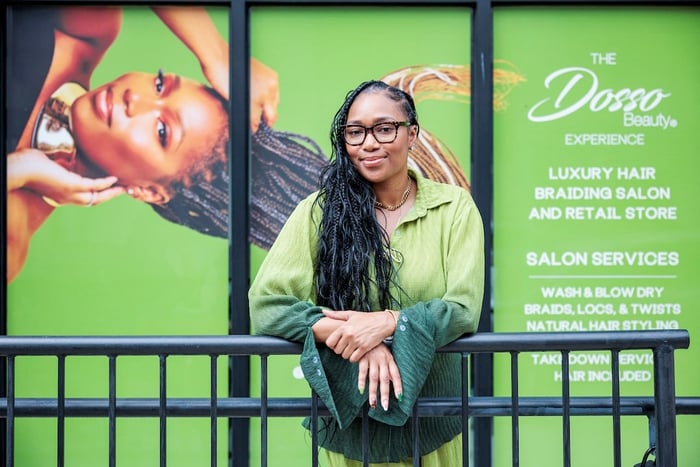
Kadidja Dosso - founder and CEO of Dosso Beauty. Photo: Reuters
She waited more than a month to receive $50,000 worth of Chinese-made hair braids via air freight at John F. Kennedy Airport in June, when US President Donald Trump announced a 145% tariff on the country.
“We have to provide more specific information about the product—the exact materials, the uses of the product—to clear customs,” Dosso said. “Part of the problem is that the language we’ve been using for years has not been descriptive enough.”
She wanted to avoid raising the price of $13 wig packages, which customers often buy at least five at a time to complete a hairstyle.
HIGHER COSTS
The tariffs are disproportionately impacting Black business owners like Blackshear-Calloway and Dosso, said Andre Perry, a senior fellow at the Brookings Institution.
“Many Black entrepreneurs start out with less assets,” Perry said. He said the wealth gap leaves Black entrepreneurs, especially those in low-margin industries like consumer goods or hair care, in precarious financial situations as tariffs cut into their profits.
Sina Golara, an associate professor of supply chain and operations management at Georgia State University, said the increased costs from tariffs “are like a tax that you impose on a business. In some cases, the foreign manufacturer may be responsible, but in most cases, it will also have a pretty significant impact on domestic buyers and consumers.”
Diann Valentine, 55, founder of Slayyy Hair, first felt the impact of tariffs shortly after the initial 145% tariff was imposed on Chinese goods, and she faced a $300,000 bill to ship 26,000 hair braids out of the Port of Los Angeles in May 2025.
“Losing such a large amount of money at this stage is really catastrophic,” Valentine said.
Since then, she has increased the prices of her braids and drawstring ponytails by 20%. She has also laid off four employees and worked 16-hour days herself to cover costs at her two Glow+Flow beauty supply stores in Inglewood and Hawthorne, California.
Slayyy Hair offered $8.49 cruelty-free braids and $35.99 synthetic drawstring ponytails to TJ Maxx and Marshalls, which refused to renegotiate prices or delivery times, to compensate.
“We were basically paying more for ponytails than TJ Maxx and Marshalls,” Valentine said. She’s also trying to renegotiate the price hike with Target, where she sells in at least 70 stores in California, Nevada, and Colorado.
TJ Maxx and Marshalls declined Reuters requests for comment.
Valentine said 50% of her merchandise comes from China, and prices for synthetic wigs, human hair wigs, plastic curlers, elastic bands, combs and brushes on her shelves are trending up at the beauty supply stores she sells her products.
"I thought we would probably see an increase in customers because there would be more DIY hair - more women doing their hair at home," she said. "But right now we're just seeing a decrease in customers and a decrease in the frequency of customers coming in."
STORES IN DIFFICULTY
“Tariffs on these imports will directly translate into higher costs for service providers, whether they buy directly from overseas manufacturers or from wholesalers in the United States,” said Marley Brocker, senior analyst at market research firm IBISWorld.
According to a NielsenIQ study that year, Black consumers in the United States spent an estimated $2.29 billion on hair care products by 2022.
But higher prices are causing some Black women to visit hair salons less often. Deiara Frye, 27, of Raleigh, North Carolina, usually makes at least five hair appointments a year, but this year she has only been there once.
“Because the cost of everything has increased over the years, I now braid my hair more often than I do extensions, or try to keep my hair natural,” she says. She’s also seen the price of natural hair care products like Unilever’s Shea Moisture and Procter & Gamble’s Pantene go up.
Fewer foot traffic is affecting beauty salons and beauty supply stores.
Until earlier this year, Dionne Maxwell sold wigs, braids, shampoo and conditioner at her small beauty supply store in Dallas, Georgia, 33 miles from Atlanta, but she closed it after starting to lose customers in May and moved operations to her home.
She now relies on orders through Uber Eats, TikTok Shop and Walmart.com to keep her business afloat, but even those sales have slowed significantly, she said.
“We don’t have money to advertise because we don’t have enough revenue to advertise,” Maxwell said.
The tariffs have increased the wholesale price of Maxwell’s Chinese-made braids by 50 cents per pack, forcing her to buy more hair in her wholesale orders. She said she has struggled to negotiate better prices with hair wholesalers, who are requiring her to order more product at a higher cost. The wholesaler is requiring her to buy 110 packs of hair per order, whereas previously she could only buy 30 at a time.
"For the past two months, we've basically had to pay our own bills because there's really been no income," Maxwell lamented.
Source: https://phunuvietnam.vn/thue-quan-dang-khien-cac-doanh-nghiep-lam-dep-cua-nguoi-da-den-gap-kho-20250819215811515.htm







![[Photo] Prime Minister Pham Minh Chinh chairs the 16th meeting of the National Steering Committee on combating illegal fishing.](https://vphoto.vietnam.vn/thumb/1200x675/vietnam/resource/IMAGE/2025/10/07/1759848378556_dsc-9253-jpg.webp)


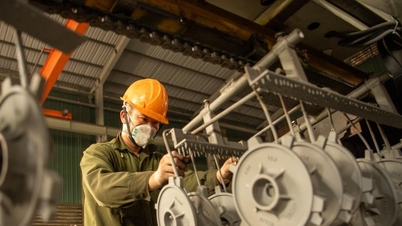

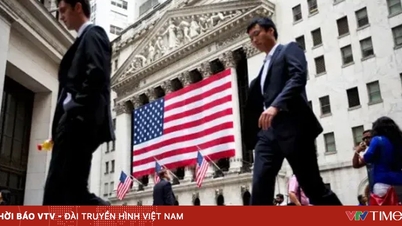

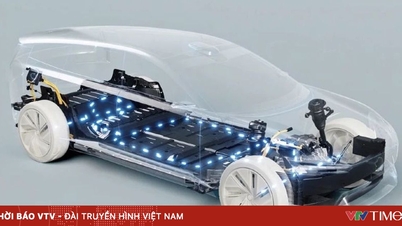
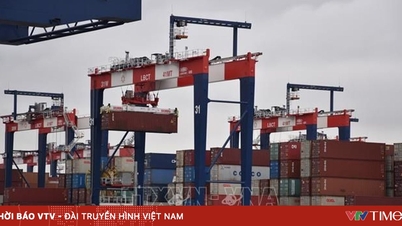
















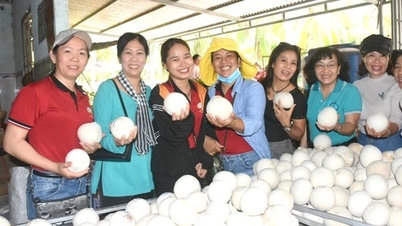

![[Photo] Super harvest moon shines brightly on Mid-Autumn Festival night around the world](https://vphoto.vietnam.vn/thumb/1200x675/vietnam/resource/IMAGE/2025/10/07/1759816565798_1759814567021-jpg.webp)

























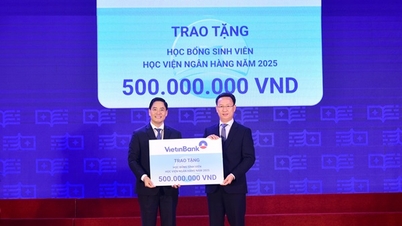








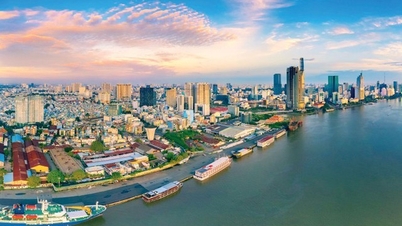



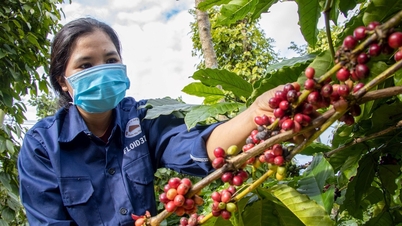















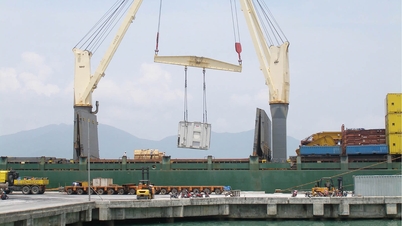
















Comment (0)